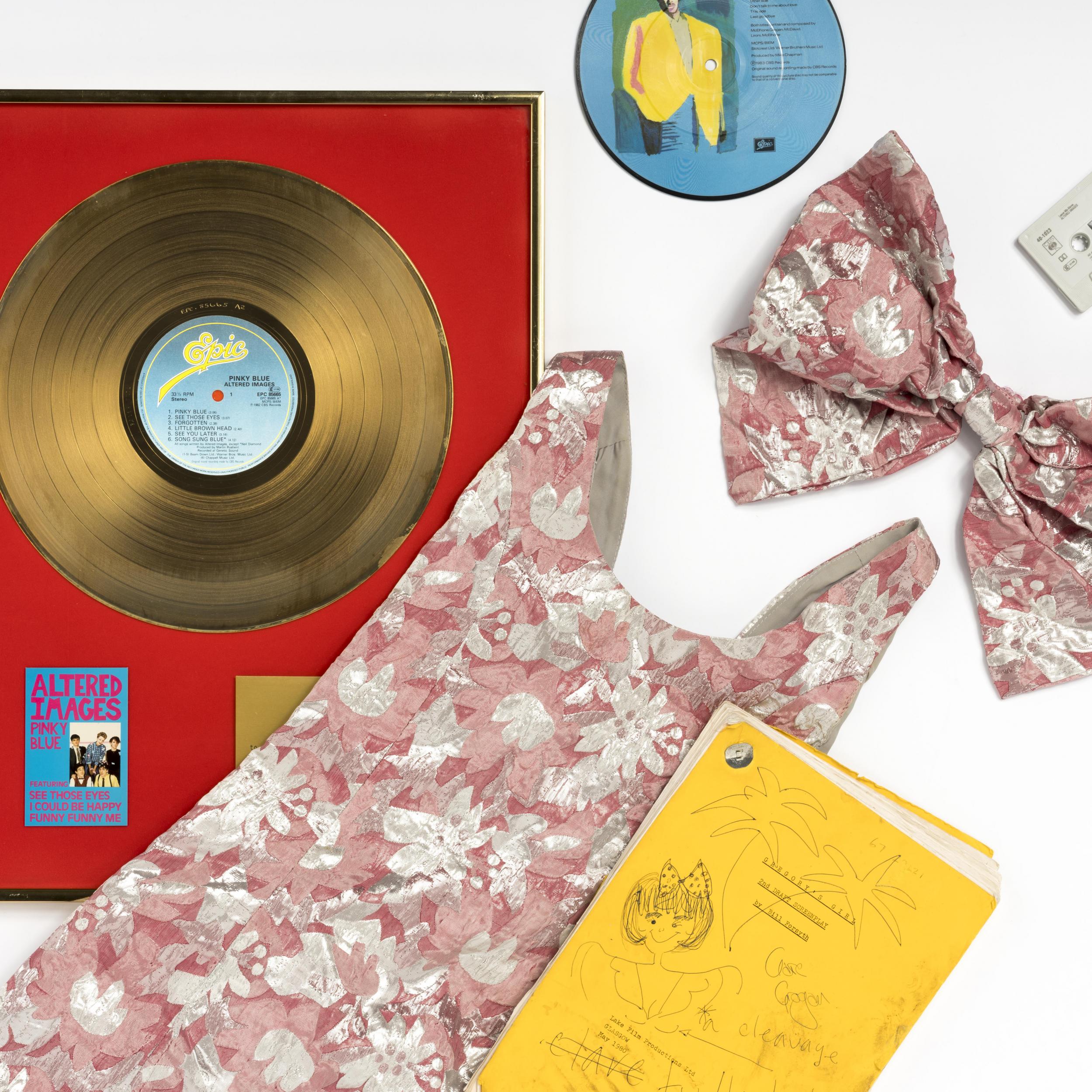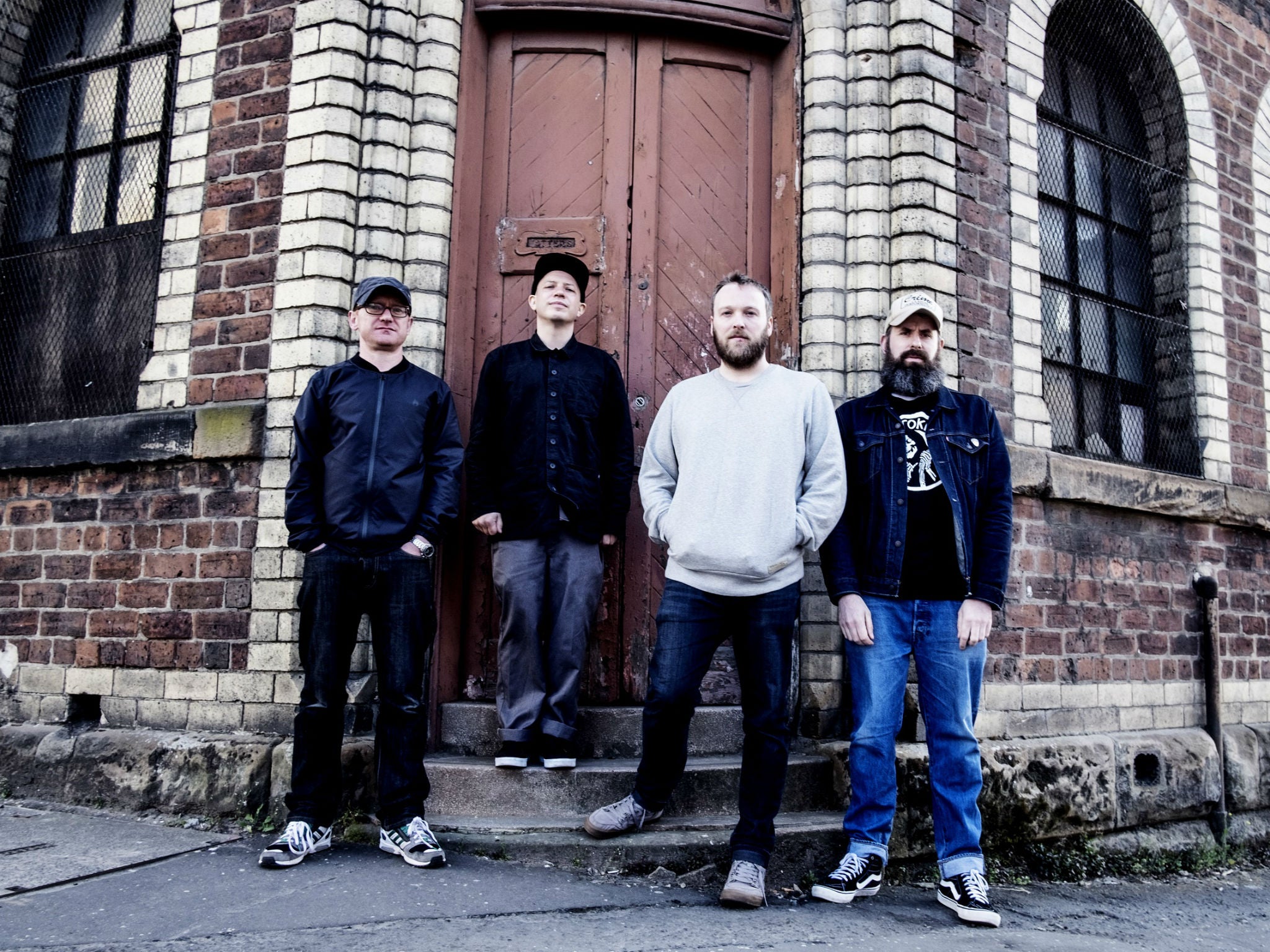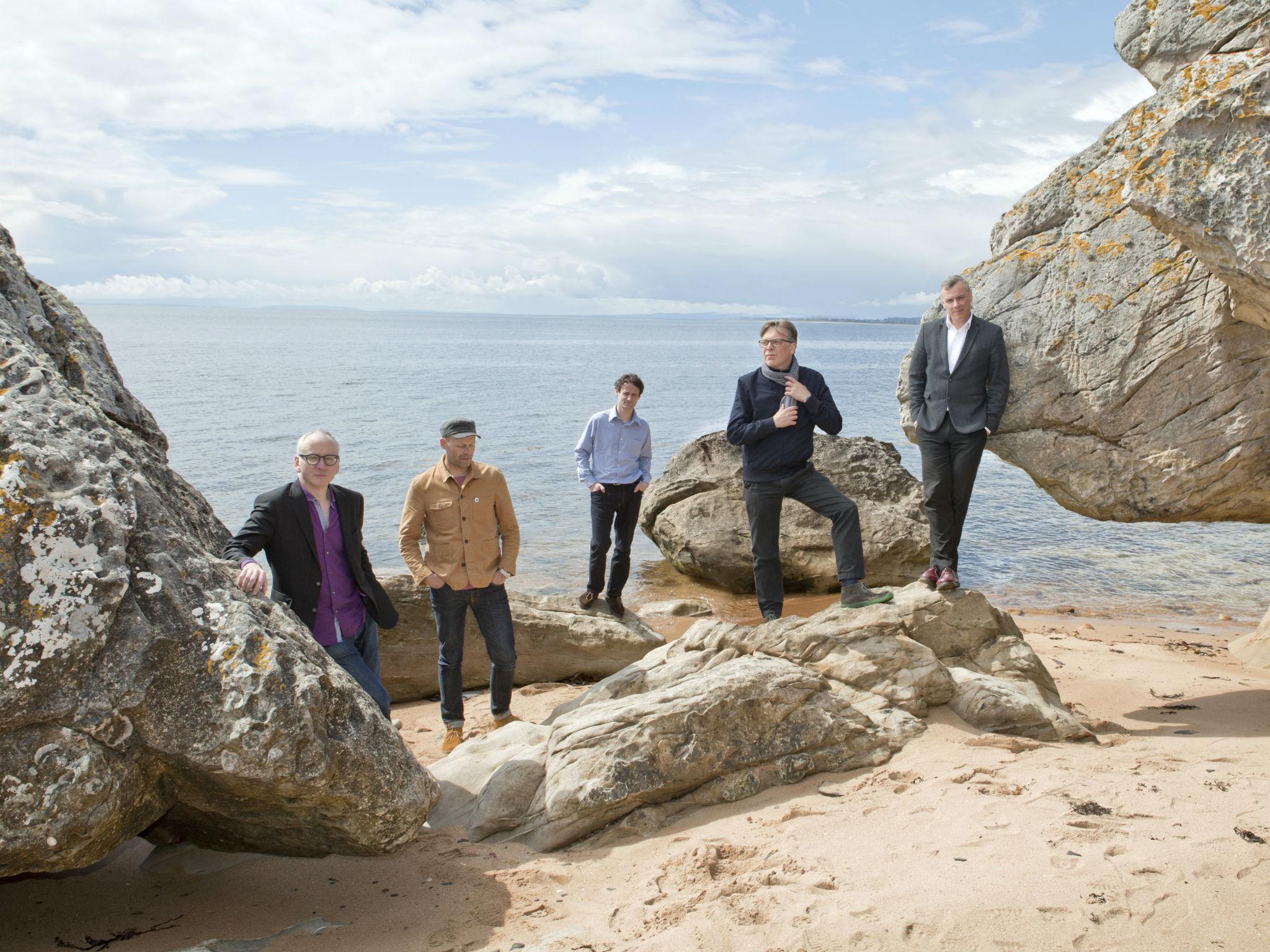What defines Scottish pop music: Working-class roots, a plucky spirit or just the weather?
Orange Juice, Teenage Fanclub, Primal Scream, Belle & Sebastian, Mogwai, Young Fathers, Chvrches – Scotland has always had a thriving music scene. A new exhibition documents it

Your support helps us to tell the story
From reproductive rights to climate change to Big Tech, The Independent is on the ground when the story is developing. Whether it's investigating the financials of Elon Musk's pro-Trump PAC or producing our latest documentary, 'The A Word', which shines a light on the American women fighting for reproductive rights, we know how important it is to parse out the facts from the messaging.
At such a critical moment in US history, we need reporters on the ground. Your donation allows us to keep sending journalists to speak to both sides of the story.
The Independent is trusted by Americans across the entire political spectrum. And unlike many other quality news outlets, we choose not to lock Americans out of our reporting and analysis with paywalls. We believe quality journalism should be available to everyone, paid for by those who can afford it.
Your support makes all the difference.“Scotland’s a country on the northwest perimeter of Europe that is relatively isolated and windswept,” ponders Edinburgh-based DJ and musician Vic Galloway, a presenter on BBC 6 Music and BBC Radio Scotland. “What defines music made there? I find it hard to say, to be honest.”
Galloway has built his reputation as a champion of new Scottish music, and he’s written the book that accompanies Rip It Up: The Story of Scottish Pop, a major new summer exhibition at Edinburgh’s National Museum of Scotland. Yet even he finds it difficult to define the subject he’s chronicled.
Yet it’s no wonder defining Scottish pop is tricky, really, given its incredible range. You could start with Lonnie Donegan in the 1950s and Lulu, Marmalade (the first Scottish group to have a number one hit, albeit with a Beatles cover), and folkies The Incredible String Band and Donovan in the 1960s. Then charge on to the Sensational Alex Harvey Band, the post-punk and indiepop of Fire Engines and Edwyn Collins’ Orange Juice, the Kurt Cobain-endorsed Vaselines and Teenage Fanclub.

The Eighties brought Simple Minds, Primal Scream, Cocteau Twins, The Proclaimers, The Jesus and Mary Chain; major Nineties artists including Garbage, Texas, Belle & Sebastian, Travis, Biffy Clyro and Mogwai. In this century, we’ve had Paolo Nutini, KT Tunstall, Young Fathers, Frightened Rabbit, Franz Ferdinand, Chvrches, and Calvin Harris.
It’s this extensive and diverse history that Rip It Up attempts to cram into one show, using visual aids such as the guitar Gerry Rafferty used to write Stealer’s Wheels “Stuck in the Middle With You”, hand-painted by the artist and playwright John Byrne; Midge Ure’s coat from Ultravox’s “Vienna” video and the guitar he played at Live Aid; the guitar which the late Stuart Adamson bought for his Skids bandmate Richard Jobson in Woolworths; and photographic records of Dundee’s Average White Band playing with Marvin Gaye.
Returning to the question of what links Scottish pop, Galloway gives it another go – this time from a cultural perspective.
“The one thing which links these artists is their work ethic,” he says. He speculates that this may be fuelled by Scotland “feeling up against it in the union, the sense that it’s the wee man which has to keep fighting. There’s a pluckiness that the Scots have, an attitude of not being told what to do or how to say it, or to sing it.
“Also, whether it’s the weather, the working-class roots or generational poverty, there’s a sense of melancholy there that runs all the way from folk music to Mogwai,” he suggests. “But it’s balanced by an anthemic nature. Scots like to cut loose and have a dance, have a party.”
Whatever contributes to Scotland’s musical identity, it appears to be at its strongest when the opportunity exists for artists to remain in the country and work with and alongside one another, rather than taking the once-inevitable route of moving to London at the merest hint of success.
Local scenes first emerged in earnest in the late 1970s and early 1980s, when Edinburgh’s renowned post-punk bands and Glasgow’s art school-focused Postcard Records (which began as a vehicle for Orange Juice and Josef K, and later drew in Aztec Camera and the Go-Betweens) drew major label scouts north of the border.
“In the early Eighties it felt like everyone you knew in Glasgow was in a band,” says Clare Grogan, who was the singer with successful new wave pop group Altered Images until 1983. “Every weekend the A&Rs would be up from London signing bands, it seemed they’d just decided Scotland was the place to go for new music.”

She recalls Simple Minds – whom Altered Images supported – as the “really big success” story, but adds: “I also loved Strawberry Switchblade, because every week I’d watch Top of the Pops in the hope of seeing someone to identify with, and it was so rare to see a band of girls.”
Grogan speaks of bands “catching” the success of one another, a domino effect fuelled by the previous decade’s enthusiasm for punk – even though a puritanical Glasgow City Council had banned punk gigs, so they had to be staged in Edinburgh or Paisley instead. Yet, much like other stars of the time such as Edwyn Collins, she ended up making her way to London to continue working.
The Scottish roots of successful bands were part of what made them inspiring, however. “One of the first bands I got into as a teenager was The Jesus and Mary Chain, and I knew they were from East Kilbride, which is a town in Lanarkshire not far from where I grew up,” says Stuart Braithwaite of Mogwai.

“I didn’t like them because they were Scottish, but when I found out they were I definitely took something from it: that people from the same place as us could go and make music and be heard all over the world.”
Mogwai formed in 1995 and have proven to be their generation’s enduring success, an instrumental rock band who first emerged on the Glasgow indie Chemikal Underground, whose roster also included the Delgados (the label’s founders, later nominated for the Mercury Prize), Arab Strap and Bis.
“When we first started getting a bit of attention we’d hear it all the time,” says Braithwaite. “‘When are you moving to London? You have to go!’
“It seems weird now that you had to go to London to be seen, because today’s financial realities mean you’d have to be a trust-fund kid to move to London and be in an indie band. But Chemikal Underground putting out our records gave us a base close to home, and for the confidence of the country, they and T in the Park [festival] made a huge difference. We realised you could have good record companies and festivals here, that they didn’t have to happen somewhere else. That was a big moment.”
Emma Pollock, a former Delgado and still the co-owner of Chemikal Underground, grew up cloistered away from new music in the Galloway town of Castle Douglas. Yet when she moved to university in Glasgow in the early 1990s and began dating her future bandmate Paul Savage, she realised there was already a homegrown scene gaining attention without leaving the country: the bands of Savage’s home county of Lanarkshire included Teenage Fanclub and BMX Bandits.

Their example was a big influence on Chemikal Underground. “Until the late Eighties everyone was chasing a major label deal in London,” says Pollock, “but at the turn of the Nineties they started to realise that they could do things a different way, and it became an independent DIY scene in Scotland. Which morphed again into what occurred in the Noughties, when everyone was making records of every possible form.”
She’s talking about a point which isn’t as well-documented nationally, when the 2000s saw the best music in Scotland released through tireless cottage labels like Fence, Lost Map and Song, By Toad. These small labels have released artists such as James Yorkston, King Creosote, Pictish Trail, Kid Canaveral and David Thomas Broughton, and survive on strong local support and international word-of-mouth. Many major label signees, like KT Tunstall and Frightened Rabbit, have retained strong grassroots links with them.
It’s worth pointing out that the concurrent success of club and electronic labels like Numbers – co-run by Jack Revill, aka Jackmaster – has also been sizeable; they’ve released records by Sophie and Hudson Mohawke, as well as non-Scots such as Jamie xx and Jessie Ware.
“If I hear the words ‘punching above our weight’ again in reference to Scottish music, I’ll reach for my revolver,” laughs Ronnie Gurr, an adviser to the Rip It Up exhibition who founded the Hanging Around fanzine in the 1970s, did press for artists including Culture Club in the Eighties, and signed the likes of Kula Shaker and Stereophonics to their major label deals in the Nineties.
“I think the idea that we’re somehow better than anywhere else is nonsense, but what I do think is worth celebrating is that we’ve done pretty well in a wide diversity of styles, that some great artists have managed to come out of this small northern European country.
“What binds The Associates and Runrig together beyond geography, though? I’m not sure it’s possible to answer that.”
‘Rip It Up: The Story of Scottish Pop’ is at the National Museum of Scotland, Edinburgh, 22 June to 25 November (nms.ac.uk). ‘The Story of Scottish Pop’, presented by Vic Galloway, is available on the BBC iPlayer
Join our commenting forum
Join thought-provoking conversations, follow other Independent readers and see their replies
Comments